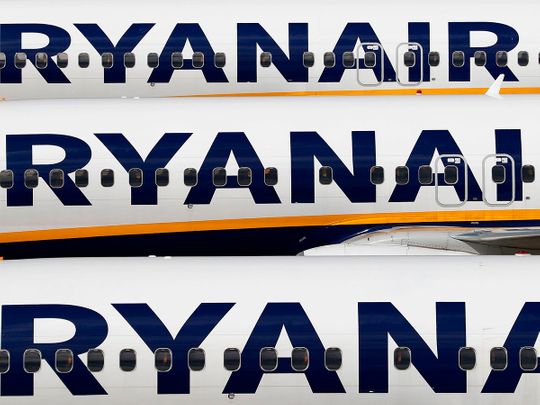
Dublin: Ireland's Ryanair Holdings Plc has canceled some UK domestic services after it said the country's Civil Aviation Authority imposed rules that made the operation of those flights impossible.
The CAA said the rules weren't new. The CAA said in a statement that it was incorrect for Ryanair to state that the authority has changed its policy at short notice, saying that it has been a "long-standing position" that a UK airline shouldn't rely heavily on using foreign-registered aircraft to undertake their operations.
Dublin-based Ryanair canceled 12 UK domestic and international routes on Sunday, citing a CAA policy change.
Divergent views
The dispute shows the complications that may arise for European carriers that have so far been able to use aircraft registered in any country of the European Union to offer services across the bloc. With the UK having left the bloc at the beginning of the year, and the transition period due to end in a little more than a week, Ryanair said that it had agreed Brexit contingency arrangements with the CAA two years ago, and couldn't comply with its "new and impractical requirements."
The CAA said the policy had nothing to do with Brexit and the decision to cancel the flights had been taken by Ryanair alone. Ryanair has only one of its fleet of more than 470 planes registered in the UK, the authority noted.
Strict on rules
Carriers operating within the EU must be majority owned by interests from the bloc to meet licensing conditions. British Airways' parent IAG SA, though legally registered in Spain, might find it difficult to meet the requirement since it has large numbers of UK and U.S. investors and is 25 per cent owned by Qatar Airways.
IAG has repeatedly said that plans regarding ownership and control were submitted last year to Spain and Ireland - where its Aer Lingus arm is based - and have been confirmed by regulators from the countries as satisfying EU rules in the event of Brexit being finalized without a deal being reached.








